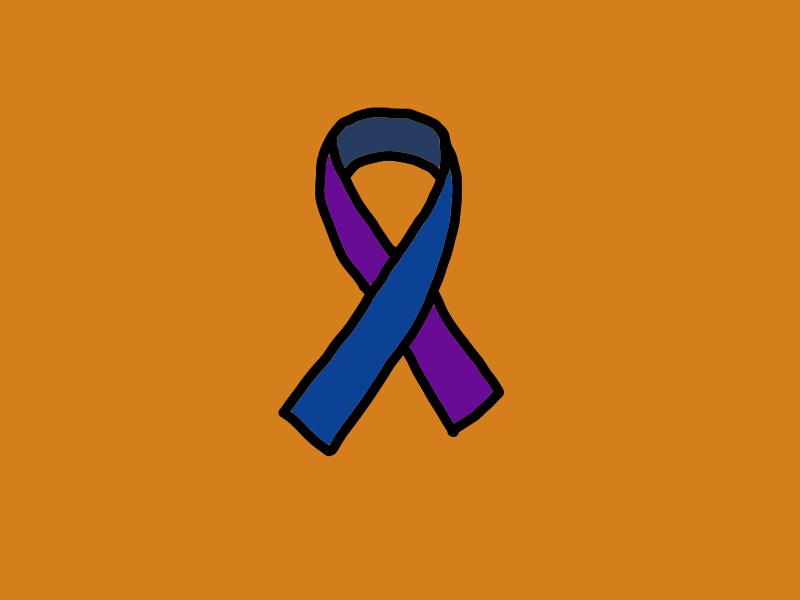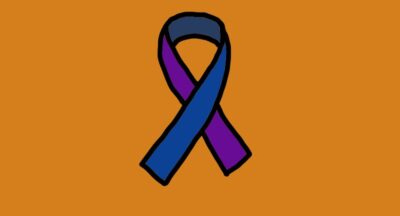
Suicide Prevention
Introduction
Suicide is the act of intentionally taking one’s own life. A person might resort to such an agonizing conclusion to their life because their experience of pain has become unbearable. Although most suicidal people feel deeply conflicted about ending their own lives, they just can’t find an alternate way to end the tremendous pain they are carrying. They see ending their life as the only option to escape their suffering, self-loathing, and isolation.
Risk Factors
The factors that might put someone at a risk of suicide include mental illnesses (such as Major Depressive disorder, Bipolar Disorder, Personality disorders, and Schizophrenia, among others); substance abuse and withdrawal, previous suicide attempts; and stressful life events and situations (such as bullying, harassment, domestic violence, poverty, breakups).
Consequences
Suicide leaves behind a trail of trauma, guilt, anger, and agony for those who witness such an abrupt end to their loved ones’ life. It is unfinished business that continuously gnaws at them and they are left grappling to somehow come to terms with what happened, and what they could have done to prevent it.
How can you help?
1. Recognize warning signs– This includes talking about killing or harming oneself, seeking out lethal means (such as gun, poison, rope…); preoccupation with death; hopelessness about future; self-loathing and self-hatred; self-destructive behavior; withdrawing from others and isolating oneself; saying goodbye to people which has a sense of finality to it; getting their affairs in order; and a sudden sense of calmness.
2. Talk to them if you feel worried- You might feel worried about broaching such a sensitive topic. You certainly don’t wish to offend them or make them feel judged. But remember, if you are worried for their well-being, the best way to find out what is going on, is to kindly and empathetically talk to them.
3. Being mindful while talking to them about their suicide intent:
Do’s
- Be yourself- It’s not about finding the right words but letting them know that you care for them, and that their life is valuable.
- Listen to them in a sympathetic and non-judgmental manner.
- Take them seriously.
- Offer hope- Let them know that help is available, that their suicidal feelings are temporary and that you are there for them.
Don’ts
- Argue with them- ‘How could you be so selfish? You are not thinking about your family members’.
- Promise confidentiality- Since you might have to disclose this information to relevant others. If your promise confidentiality and then break it, they might end up feeling betrayed by you.
- Try to ‘fix’ them- ‘Suicidal feelings and behavior are complex phenomenon, that require professional help. Taking it onto yourself to ‘fix’ or ‘save’ someone will not just be draining for you, but also counterproductive for them.
- Act shocked- ‘How could you talk like this. It’s immoral and irreligious to end your own life’.
- Blame yourself- You loved one’s happiness or lack thereof, is not your responsibility. Be supportive towards them, and make them valued and cared for, but do not blame yourself for the way they are feeling.
4. Evaluate the immediate danger they are in:
Following questions might help:
- Do you have a suicide plan? (PLAN)
- Do you have what you need to carry out your plan? (MEANS)
- Do you know when you would do it? (TIME)
- Do you intend to take your own life? (INTENTION)
Level of suicide risk:
- LOW- Some suicidal thoughts, no suicide plan. Says he or she won’t attempt suicide.
- MODERATE- Suicidal thoughts. Vague plan that isn’t very lethal. Says he or she will not attempt suicide.
- HIGH- Suicidal thoughts. Specific plan that is highly lethal. Says he or she will not attempt suicide.
- SEVERE- Suicidal thoughts. Specific plan that is highly lethal. Says he or she will attempt suicide.
5. Offering help and support:
- Get professional help- Suicidal thoughts, feelings, and behavior are a complex phenomenon that require professional attention. A combination of therapy and pharmacological help might alleviate your loved one’s suffering.
- If a suicide attempt seems imminent, call a local crisis center, remove lethal objects from the vicinity. DO NOT under any circumstances leave the suicidal person alone.
- If they are undergoing any treatment follow up on it- ‘Have you been going to therapy?’; ‘Have you been taking your medications?’
- Be proactive in providing them support and care- Do not wait for them to reach out to you. Call them, drop by, invite them for gatherings even if they said no last several times.
- Make a safety plan: Help them come up with a safety plan to be followed during a suicidal crisis. This could look like calling a local crisis center, calling friends, family or other relatives; distracting oneself. You could read more about safety plans here- (attach link)
- Continue your support over the long haul- This might be one of the most important things you could do for someone experiencing suicidal intent. Keep checking on them and letting them know you care, and that their life is valuable.
6. Lobby for responsible media reporting of suicide: Studies show that media coverage of suicide behaviors and actual suicidality are associated (Sisask & Varnik, 2012). There is strong modeling effect (learning by observation) seen in vulnerable individuals because of highly publicized reporting. Sensational reporting of suicide actually provokes suicidal behavior in those at risk. You could read about WHO Guidelines for responsible reporting of suicide here (attach link).
7. Lobbying for systematic changes aimed at suicide prevention- Macroeconomic policies aimed at meeting the basic needs and rights of the population (employment, healthcare, education, water, sanitation); organizing local support groups within vulnerable sections of the society; changing the culture which accepts suicide as a way out of misery; social justice efforts for minorities like women, Bahujan communities.
Note: Gulmohar does not provide suicide helpline/ intervention. Please call a suicide helpline number if you are in distress.
Suicide Helpline number: +91 9820466726, or visit http://www.aasra.info/helpline.html
Related Posts
Suicide Prevention
Introduction Suicide is the act of intentionally taking one’s own life. A...

Good article nausheen, very informative for those who are going through such thoughts and also for those who have some known person going through suicidal thoughts.
Sometimes your intentions are pure but the words you chose ignite the tendency rather than helping someone.
Moreover, I can sense Gulmohar reaching heights. Good luck team